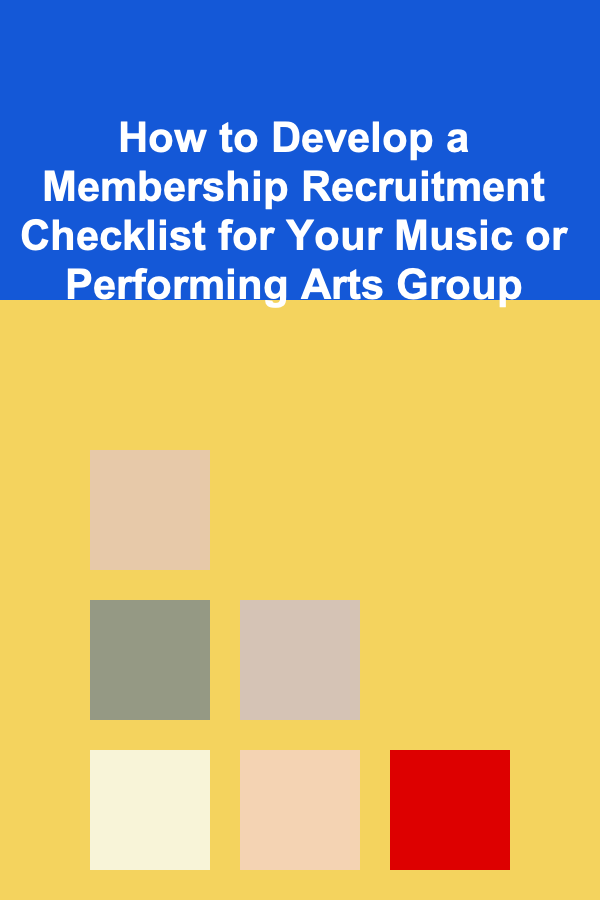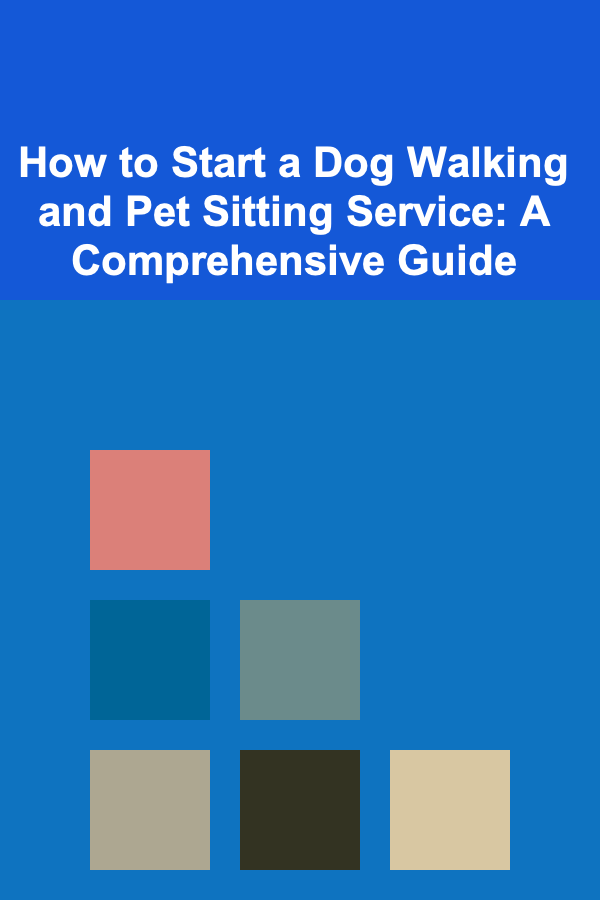
How To Choose Your First Programming Language
ebook include PDF & Audio bundle (Micro Guide)
$12.99$7.99
Limited Time Offer! Order within the next:

Choosing the right programming language for your first project is a critical step in your journey as a programmer. The first language you learn can shape your development as a coder, affect how easy or difficult it is to start building projects, and influence your career trajectory. But with so many languages out there---each with its strengths and weaknesses---how do you decide which one to start with?
In this article, we'll explore several factors to consider when choosing your first programming language. We'll also highlight some of the most popular languages and provide guidance on which ones may be the best fit for different goals and learning styles. Whether you're a complete beginner or someone looking to enhance your skills, this article will give you a roadmap for making an informed decision.
Consider Your Goals
Before diving into the technicalities of programming languages, you need to think about why you want to learn programming in the first place. Are you interested in web development, mobile app creation, data science, or game development? Your goals will significantly influence the language you should start with.
Web Development
If your goal is to build websites, web applications, or work on the front-end and back-end of web systems, languages like JavaScript , HTML/CSS , and Python are excellent choices. JavaScript, in particular, is indispensable for front-end development. It runs on every modern web browser, allowing you to create interactive, dynamic websites. HTML and CSS are essential for structuring and styling web pages.
For back-end development, you can start with Python or Ruby. Python's readability and vast ecosystem of libraries make it an ideal choice for those new to programming, while Ruby is often favored for rapid application development with frameworks like Ruby on Rails.
Mobile App Development
If you're drawn to building mobile applications, you'll need to focus on languages that support both iOS and Android platforms. For iOS development , Swift is the primary language, while Kotlin and Java are widely used for Android development . If you want to build apps for both platforms simultaneously, you might consider learning React Native (JavaScript-based) or Flutter (Dart-based), which are popular cross-platform mobile frameworks.
Data Science and Machine Learning
For those who are interested in data science , artificial intelligence , or machine learning , Python is often the best choice. Python has become the dominant language in these fields due to its ease of learning, extensive libraries (such as NumPy, pandas, and TensorFlow), and vibrant community. If you are interested in statistical programming, R is also an excellent option.
Game Development
If you're passionate about creating games, C# with the Unity game engine is a popular choice for beginners. Unity is user-friendly and has a large community, making it easy for newcomers to find resources and tutorials. C++ , while more complex, is the go-to language for professional game development, especially for performance-critical games using Unreal Engine.
Software Engineering and System Programming
For low-level programming, or if you're interested in systems and performance-critical applications, C and C++ are the standard choices. While they have a steeper learning curve than other languages, they give you control over memory management and system resources, making them ideal for applications that need high performance, such as operating systems or embedded systems.
Look at the Language's Syntax and Learning Curve
Different languages have different levels of complexity when it comes to their syntax (the rules that define the structure of code). Some programming languages are designed to be beginner-friendly, while others are more suited for experienced programmers.
Easy-to-Learn Languages
Some languages are known for their simplicity and ease of learning:
- Python: Often considered one of the best programming languages for beginners, Python's syntax is clear and easy to understand. It emphasizes readability and reduces the complexity of tasks with powerful built-in libraries and frameworks. Python also requires fewer lines of code to perform complex operations compared to many other languages.
- JavaScript: Though it may be more challenging than Python at first, JavaScript is another relatively easy language for beginners. It's essential for web development and works seamlessly with HTML and CSS to create interactive web applications.
- Ruby: Ruby is known for its elegant syntax that is easy to read and write. It is often recommended for beginners, especially if you want to work with web frameworks like Ruby on Rails.
Steep Learning Curve Languages
Some languages are more complex and have a steeper learning curve:
- C++: While C++ is incredibly powerful and widely used, it has a complex syntax and requires more effort to understand memory management and pointers. It's not the best choice for absolute beginners, although it can be rewarding once you get past the initial challenges.
- Assembly Language: If you're interested in low-level programming, assembly language might be appealing. However, it is not beginner-friendly. It requires a deep understanding of how hardware works, making it challenging for someone just starting out.
The complexity of the language's syntax can affect how quickly you progress. For your first programming language, it's typically recommended to start with one that minimizes the cognitive load. This way, you can focus on learning the core programming concepts instead of being bogged down by intricate language details.
Consider the Language's Popularity and Community Support
Another crucial factor to consider is the language's popularity and the support available within its community. A large, active community can help you solve problems faster and learn more effectively.
Why Popularity Matters
Popular programming languages usually have:
- Extensive Documentation: The more widely used a language is, the more likely it is to have extensive, high-quality documentation, tutorials, and resources available online.
- Vibrant Community: A strong community means you'll be able to find solutions to problems quickly through forums, Stack Overflow, and social media groups.
- Job Opportunities: Learning a popular language also increases your job prospects, as companies often look for developers proficient in widely used languages.
Popular Beginner-Friendly Languages
- Python: Python tops the list of beginner-friendly languages due to its massive community and wealth of resources. It's easy to find tutorials, blogs, and online courses.
- JavaScript: As the backbone of web development, JavaScript also has a vibrant and active community. There are plenty of frameworks and libraries that make it easier to build applications quickly.
- Ruby: Ruby's community, though smaller than Python's or JavaScript's, is extremely supportive, particularly in the context of web development.
Lesser-Known Languages
If you choose a less popular language, you may find it harder to get help or resources, which could slow down your learning. However, this isn't always a deal-breaker. For example, niche languages such as Rust or Go have growing communities and can still offer valuable career opportunities in specialized fields.
Think About Your Career Path
Your career goals should influence your decision. Different programming languages are in demand for different sectors. Some fields place more emphasis on specific languages, so knowing the trends in your area of interest can help you choose a language that will serve you well in the job market.
High-Demand Languages for Various Fields
- Web Development: JavaScript (front-end), Python, Ruby (back-end)
- Mobile Development: Swift (iOS), Kotlin (Android), Java (Android), React Native (cross-platform)
- Data Science and Machine Learning: Python, R
- Game Development: C#, C++
- Systems Programming: C, C++
If you're unsure about which career path you want to take yet, learning a general-purpose language like Python or JavaScript could give you flexibility, as these languages are widely used across different domains.
Look at Job Market Trends
The demand for different programming languages varies by industry and location. If your main goal is to secure a job in programming, it's important to consider current job market trends. Some languages, such as JavaScript , Python , and Java, consistently show up as highly demanded in job listings.
To get an idea of the market, you can:
- Check job boards like LinkedIn, Indeed, and Glassdoor to see which languages employers are seeking.
- Read reports on the demand for programming languages. Sites like Stack Overflow's Developer Survey and GitHub's annual Octoverse report provide insights into trends in the programming industry.
Practice Makes Perfect
Regardless of the language you choose, remember that the most important aspect of learning programming is practice. You will face challenges and frustrations, but pushing through these will teach you not only how to code but also how to problem-solve.
As you learn, try to work on real projects. Start small, then build up your skillset by solving problems, building applications, and collaborating with others. The process of writing code will teach you much more than reading tutorials and documentation alone.
Conclusion
Choosing your first programming language doesn't need to be a daunting decision. The key is to align your choice with your goals, learning style, and the type of projects you want to work on. If you want to dive into web development, JavaScript is a great option. For data science and AI, Python is unbeatable. If you're aiming for mobile app development, Swift and Kotlin are solid choices.
Ultimately, it's not just about which language is the "best"---it's about finding the one that resonates with your interests and allows you to learn and grow as a programmer. Focus on building a strong foundation in programming concepts, and the specific languages and tools will come more easily as you progress in your career.
Good luck, and happy coding!
Reading More From Our Other Websites
- [Simple Life Tip 101] Best Strategies for Simplifying Your Holiday Gift Giving with Hand‑Made Options
- [Home Staging 101] How to Stage a Home with a Unique Layout
- [Home Space Saving 101] How to Create a Cozy, Space-Saving Reading Nook in Any Room
- [Personal Care Tips 101] How to Use Hand Cream to Prevent Aging Hands
- [Home Budget 101] How to Use Cash Envelopes to Stick to Your Home Budget
- [Home Lighting 101] How to Use Lighting to Create a Welcoming Entryway
- [Soap Making Tip 101] Mastering Soap Formulas: How to Use a Lye Calculator for Perfectly Balanced Bars
- [Home Budget Decorating 101] How to Repurpose and Reuse Items for Home Decoration on a Budget
- [Home Staging 101] How to Stage Your Home's Windows to Maximize Natural Light
- [Personal Financial Planning 101] How to Save Money on Utilities and Other Monthly Bills

How to Develop a Membership Recruitment Checklist for Your Music or Performing Arts Group
Read More
How To Launch a Social Media Management Agency
Read More
How to Monitor Your Home Security Using Your Smartphone
Read More
How To Research the Future of Human Genetics
Read More
How to Start a Dog Walking and Pet Sitting Service: A Comprehensive Guide
Read More
10 Tips for a Senior-Specific Health To-Do List
Read MoreOther Products

How to Develop a Membership Recruitment Checklist for Your Music or Performing Arts Group
Read More
How To Launch a Social Media Management Agency
Read More
How to Monitor Your Home Security Using Your Smartphone
Read More
How To Research the Future of Human Genetics
Read More
How to Start a Dog Walking and Pet Sitting Service: A Comprehensive Guide
Read More